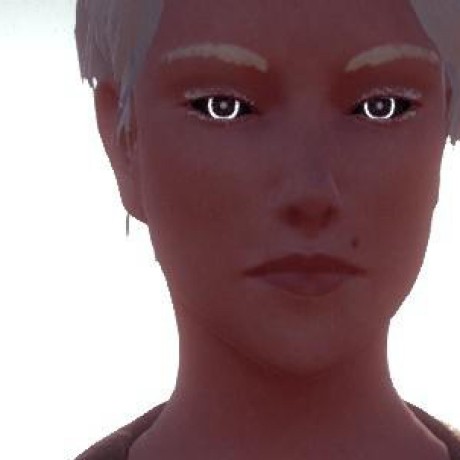lib-sparse.glsl
This file provides useful functions to ensure sparse textures sampling correctness (ARB_sparse_texture). Allows to sample only part of textures really present in video memory.
Public Functions:
getSparseCoord
getSparseCoordLod0
textureSparseQueryLod
textureSparse
Public Structures:
SamplerSparse
SparseCoord
The FEATURE_SPARSE_TEXTURE macro is defined only if the sparse virtual texture extension is enabled.
If enabled, process additional texture lookup checks to climb up mipmap pyramid if texels are missing.
Copied to your clipboard#ifdef FEATURE_SPARSE_TEXTURE//: param auto material_lod_check_neededuniform bool material_lod_check_needed = false;//: param auto material_lod_maskuniform usampler2D material_lod_mask;#endif // FEATURE_SPARSE_TEXTURE//: param auto uvtile_reference_sampleruniform sampler2D uvtile_reference_sampler;//: param auto uvtile_sizeuniform vec2 uvtile_size;//: param auto uvtile_inverse_sizeuniform vec2 uvtile_inverse_size;//: param auto uvtile_lod_biasuniform float uvtile_lod_bias;
Sampler and sparse texture information structure
Used to query all sampler related uniforms with a single auto binding
Copied to your clipboardstruct SamplerSparse {sampler2D tex;vec4 size; // width, height, 1/width, 1/heightbool is_set; // a boolean indicating whether the texture is in the texture set or notbool is_color; // a boolean indicating whether the texture is color (RGBA) or grayscale (R, GB)uvec3 lod_mask_select; // masking operations description allowing to retrieve loaded mipmaps information};
Sparse sampling coordinates
Store the UV coordinates \& material-wise sparse LoD mask
Copied to your clipboardstruct SparseCoord {vec2 tex_coord;vec2 dfdx;vec2 dfdy;float lod;uint material_lod_mask;};#if defined(SHADER_FRAGMENT)
Build texture coordinates structure used by textureSparse() sampling function
(must be called from fragment shader)
Example: SparseCoord uv1coord = getSparseCoord(inputs.multi_tex_coord[1]);
Copied to your clipboardSparseCoord getSparseCoord(vec2 tex_coord) {SparseCoord res;res.tex_coord = tex_coord;res.dfdx = dFdx(tex_coord);res.dfdy = dFdy(tex_coord);#ifdef FEATURE_SPARSE_TEXTUREres.material_lod_mask = material_lod_check_needed ?textureLod(material_lod_mask,tex_coord,0.0).r :0u;res.lod = getLodFromReferenceSampler(tex_coord);#endif // FEATURE_SPARSE_TEXTUREreturn res;}#endif
Build texture coordinates structure used by textureSparse() sampling function
Base level sampling version (can be used if outside fragment shader)
Copied to your clipboardSparseCoord getSparseCoordLod0(vec2 tex_coord) {SparseCoord res;res.tex_coord = tex_coord;res.dfdx = vec2(0.0);res.dfdy = vec2(0.0);#ifdef FEATURE_SPARSE_TEXTUREres.material_lod_mask = material_lod_check_needed ?textureLod(material_lod_mask,tex_coord,0.0).r :0u;res.lod = 0.0;#endif // FEATURE_SPARSE_TEXTUREreturn res;}#if defined(SHADER_FRAGMENT)
Compute the level-of-detail that would be used to sample from a sparse texture
Climb up mipmap pyramid if texels are missing Returns LoD BEFORE LoD bias applied
Copied to your clipboardfloat textureSparseQueryLod(SamplerSparse smp, SparseCoord coord) {#ifdef FEATURE_SPARSE_TEXTUREfloat lodfix = coord.lod;if (material_lod_check_needed) {lodfix = getFixedSparseLod(getTextureLodMask(smp.lod_mask_select, coord.material_lod_mask), lodfix);}return lodfix-uvtile_lod_bias;#else // FEATURE_SPARSE_TEXTURE// Do not use textureQueryLod here: workaround of MacOS driver issue (dramatic FPS drop)vec2 dx = coord.dfdx * smp.size.xy;vec2 dy = coord.dfdy * smp.size.xy;return max(0.0, 0.5 * log2(max(dot(dx, dx), dot(dy, dy))));#endif // FEATURE_SPARSE_TEXTURE}#endif // SHADER_FRAGMENT
Compute the derivatives that would be used to sample from a sparse texture
Climb up mipmap pyramid if texels are missing
Copied to your clipboardvoid textureSparseQueryGrad(out vec2 dfdx, out vec2 dfdy, SamplerSparse smp, SparseCoord coord) {#ifdef FEATURE_SPARSE_TEXTUREif (material_lod_check_needed) {float lodfix = getFixedSparseLod(getTextureLodMask(smp.lod_mask_select, coord.material_lod_mask), coord.lod);if (coord.lod!=lodfix) {// Fix dfdx dfdy, take account offset, no more anisotropyvec2 ddfix = exp2(lodfix-uvtile_lod_bias) * uvtile_inverse_size;dfdx = vec2(ddfix.x,0.0);dfdy = vec2(0.0,ddfix.y);return;}}#endif // FEATURE_SPARSE_TEXTUREdfdx = coord.dfdx;dfdy = coord.dfdy;}
Performs a texture lookup on a sparse texture, go up the mipmap levels if necessary
This function replaces the standard texture(sampler2D, vec2) to retrieve texels from a sparse texture
Copied to your clipboardvec4 textureSparse(SamplerSparse smp, SparseCoord coord) {vec2 dfdx,dfdy;textureSparseQueryGrad(dfdx, dfdy, smp, coord);return textureGrad(smp.tex, coord.tex_coord, dfdx, dfdy);}
Given a texture, performs an optimized multiple texture lookups with small offsets
We are providing alternatives versions of this helper for up to N\=4
Copied to your clipboardvoid textureSparseOffsets(SamplerSparse smp, SparseCoord coord, vec2 offsets[N], out vec4 results[N]) {vec2 dfdx,dfdy;textureSparseQueryGrad(dfdx, dfdy, smp, coord);for(int i = 0; i < N; ++i) {results[i] = textureGrad(smp.tex, coord.tex_coord + offsets[i], dfdx, dfdy);}}
